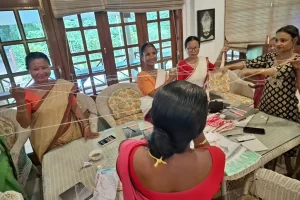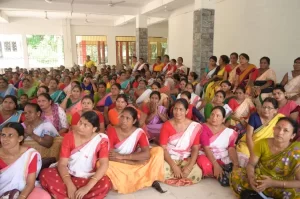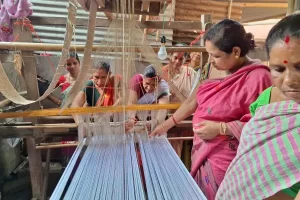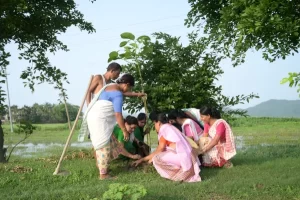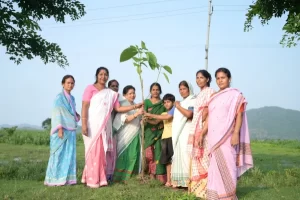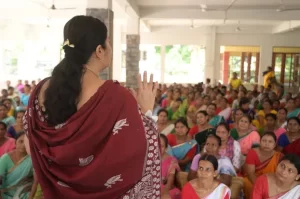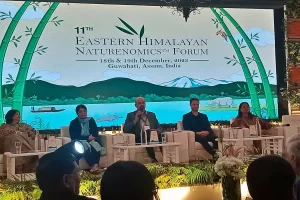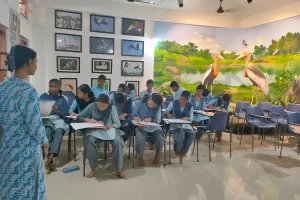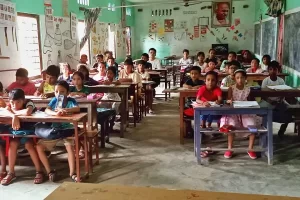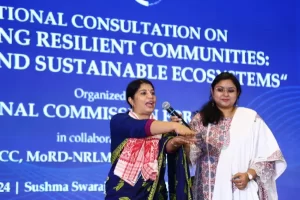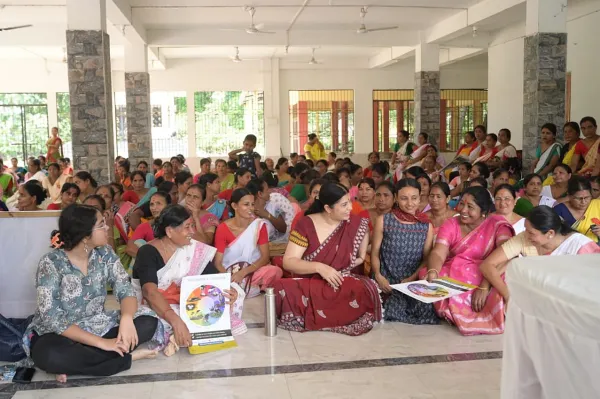Sampriti: Empowering Women, Restoring Landscapes
are being restored
people positively impacted
trees being planted
tonnes CO₂ to be captured
Project Summary
- Biodiversity
- ·
- Capacity development
- ·
- Education
- ·
- Forest restoration
- ·
- Reforestation
- ·
- Regenerative agriculture
- ·
- Training
- ·
- Wetland restoration

Project area
The regions of North East India and Bhutan encompass two globally recognized biodiversity hotspots: the Himalayas and the Indo-Burma region, both listed among 36 designated biodiversity hotspots worldwide. Unfortunately, these areas are currently grappling with a dual crisis—biodiversity and climate—largely attributable to the extensive destruction of natural habitats.
The problem
The regions of North East India and Bhutan encompass two globally recognized biodiversity hotspots: the Himalayas and the Indo-Burma region, both listed among 36 designated biodiversity hotspots worldwide. Unfortunately, these areas are currently grappling with a dual crisis—biodiversity and climate—largely attributable to the extensive destruction of natural habitats.
The biodiversity crisis in this region is exacerbated by rampant deforestation, with trees being indiscriminately felled. Additionally, wetlands, vital ecosystems supporting a diverse array of plant and animal life, are being systematically drained, polluted, and degraded to accommodate urban development and agricultural activities. Wetlands play a crucial role in sustaining biodiversity, yet they are disappearing at a rate three times faster than global forest loss, a trend attributed to both human activities and the impacts of climate change.
Addressing this multifaceted crisis necessitates urgent and concerted efforts to preserve these vital ecosystems, promote sustainable land use practices, and mitigate the adverse impacts of climate change. The conservation of these biodiversity hotspots is not only important for the local ecosystems but also holds global significance in the context of preserving Earth’s biodiversity and mitigating climate change effects.
What the project does
Sampriti programme, a scalable conservation model, currently trains over 14,000 women for ecosystem restoration. Engaging indigenous women through a sisterhood, the program encompasses bird rescue, tree planting, cultural events, and more in rural areas. This village-based approach empowers women, creating entrepreneurs, improving livelihoods, benefitting 50,000 people and restoring 5000 ha of land. The community planted more than 45,000 saplings to support stork populations, with plans for 50,000 saplings annually. Our goal is to plant 250,000 trees in the next 5 years. The programme also protected and avoided logging of 280,000 trees.
Empowering women
In Assam, where women often face limited opportunities, the program offers economic empowerment to those with little formal education, showcasing the potential of this inclusive conservation effort. The programme has reached 30,000 children through its class-based and field-based education activities. 2000 youths have been trained through environmental education and capacity development.
The project’s composite strategy aligns culture, tradition, and conservation education, showcasing success where conventional methods falter. Now prestigious to join, the Hargila Army’s impact is an inspiring model deserving replication across the region.
Awards
In November 2022, programme director Purnima Devi Barman was honored with the Champions of the Earth award by the UN Environment Programme. The Whitley Fund for Nature (WFN), has recognised Dr Purnima Devi Barman from India with the prestigious 2024 Whitley Gold Award for her extraordinary work to rescue the Greater Adjutant Stork. These prestigious accolades acknowledge her transformative contributions to both the environment and the innovative approaches she has introduced to address environmental challenges.
Next steps
The Sampriti programme is now expanding and upscaling to extend its reach, impact, and influence, transitioning to a new stage characterised by self-supporting groups of indigenous women, fostering sustainability and lasting positive change in society. Tree nurseries and agroforestry will be developed. We are also expanding to the Greater adjutant stork population in Cambodia.
In the next three years, the program will reach and engage over 100,000 indigenous rural women from fringe areas of 25 national parks and wildlife sanctuaries across the Northeast Indian states. We will also extend our reach to the Indo-Bhutan border areas, encompassing rich natural and biodiversity zones, where we will scale our model by networking with indigenous Bhutanese women.
We will reach and involve 200 schools, with in total 80,000 children and youth through the mobile rewilding school and involve them in tree planting and ecosystem restoration activities in their areas. Through the upscaling and organisation of village-based women groups into cooperatives, we aim to diversify the product range and value chains. This initiative aims to realise a 30% increase in household income, contributing to enhanced economic and climate resilience in communities.
This project is pivotal for the Rewilding Academy as it aligns with our commitment to provide students and practitioners with education that integrates practical knowledge and skills with a profound understanding of scientific and cultural principles.
Project Partners



Project Gallery
